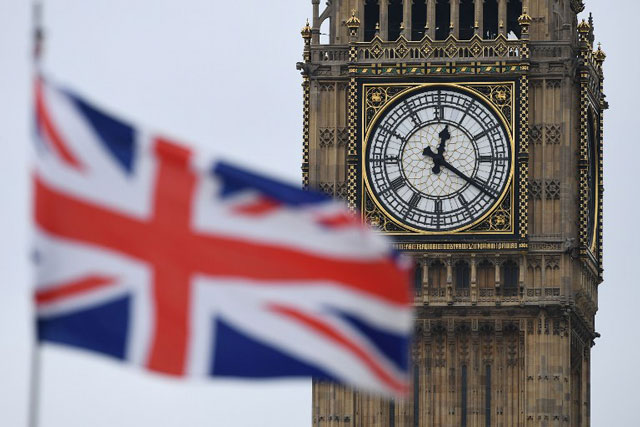
London, United Kingdom | AFP | As the latest round of Brexit negotiations in Brussels come to a close on Thursday, here is an outline of what we know so far about Britain’s departure from the European Union:
– Timing –
Following Britain’s vote to leave the EU in a June 2016 referendum, Prime Minister Theresa May officially gave notice to 28-member bloc on March 29.
This set the clock ticking on a two-year process that will see Britain withdraw on March 29, 2019.
Negotiations with Brussels began in June, focused on three issues — the financial settlement, EU citizens’ rights and the Irish border question.
EU leaders must agree “sufficient progress” on these matters before shifting the discussion to trade.
London wants this to happen at a summit in October, but many believe this is unlikely.
The European Commission’s negotiator, Michel Barnier, has said the talks must be wrapped up by October 2018 to give the EU Parliament time to ratify any deal.
– Transition –
During a speech in Florence last week, May confirmed Britain would seek a time-limited “implementation period” to give certainty to businesses as they prepare for Brexit.
It would last “around two years” although this has reportedly caused divisions in the cabinet.
May has said Britain intends to leave the European single market in order to end the free movement of people from the continent.
But free movement would continue during the transition period, although EU citizens would have to register on arrival in Britain.
During this phase, May says Britain and the EU would have access to one another’s markets “on current terms”.
– Brexit bill –
After talks stalled on the issue of money, May said last week that Britain will honour commitments made during its membership up until the end of the current budget cycle, which ends in 2020.
It would also pay towards future joint programmes on security and scientific research.
But Brexit Secretary David Davis said claims Britain owed a contribution to the EU’s future pension pot were “debatable”.
Two years of British budget contributions would be worth least 20 billion euros (£18 billion/$24 billion), but this falls well short of the 60-100 billion euro total raised by EU officials.
– EU citizens –
The status of more than three million Europeans living in Britain, and more than one million British expatriates, is a key issue for both sides.
May has promised that anyone already in Britain can stay, and Europeans with five years of residency can apply for permanent leave to remain.
But the two sides disagree on the role of the European Court of Justice in guaranteeing citizens’ rights, and the right of their relatives to settle.
– Ireland
Both the EU and Britain say they do not want to see customs posts returned to the border between Northern Ireland and Ireland.
But the solution of how to police the EU’s external frontier without upsetting the delicate peace in the region has yet to be resolved.
– Trade –
As well as leaving the single market, May says Britain would leave the EU’s customs union so that it can strike its own trade deals with other countries.
She has called for a “creative” approach to forging a new “close economic partnership” with the EU.
And she has rejected joining the European Economic Area or signing a traditional free trade agreement.
– No deal? –
Before the June election when she lost her majority in the House of Commons, May repeatedly said she would rather walk away rather than accept a bad deal.
In Florence, she said that was still on the table, but stressed: “It is in all of our interests for our negotiations to succeed”.
Without a new trade agreement, Britain would fall back on World Trade Organization (WTO) rules, which could mean higher export tariffs and other barriers.
– Parliament –
May has promised the British parliament a vote on the final Brexit deal but warned that rejecting it meant Britain would leave without any agreement.
Before then, she must push eight bills relating to Brexit through the House of Commons, where she is reliant on the support of Northern Ireland’s Democratic Unionist Party for a majority.
MPs are currently scrutinising the first bill, which will repeal Britain’s EU membership and transfer four decades of European law onto the UK statute books.
 The Independent Uganda: You get the Truth we Pay the Price
The Independent Uganda: You get the Truth we Pay the Price

